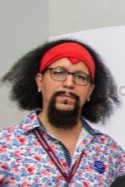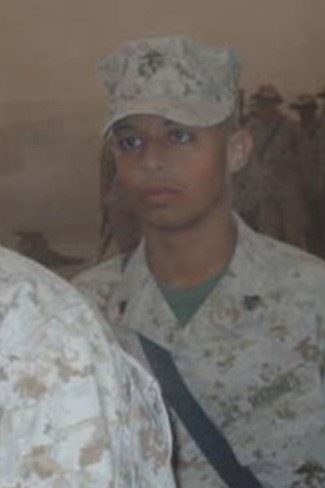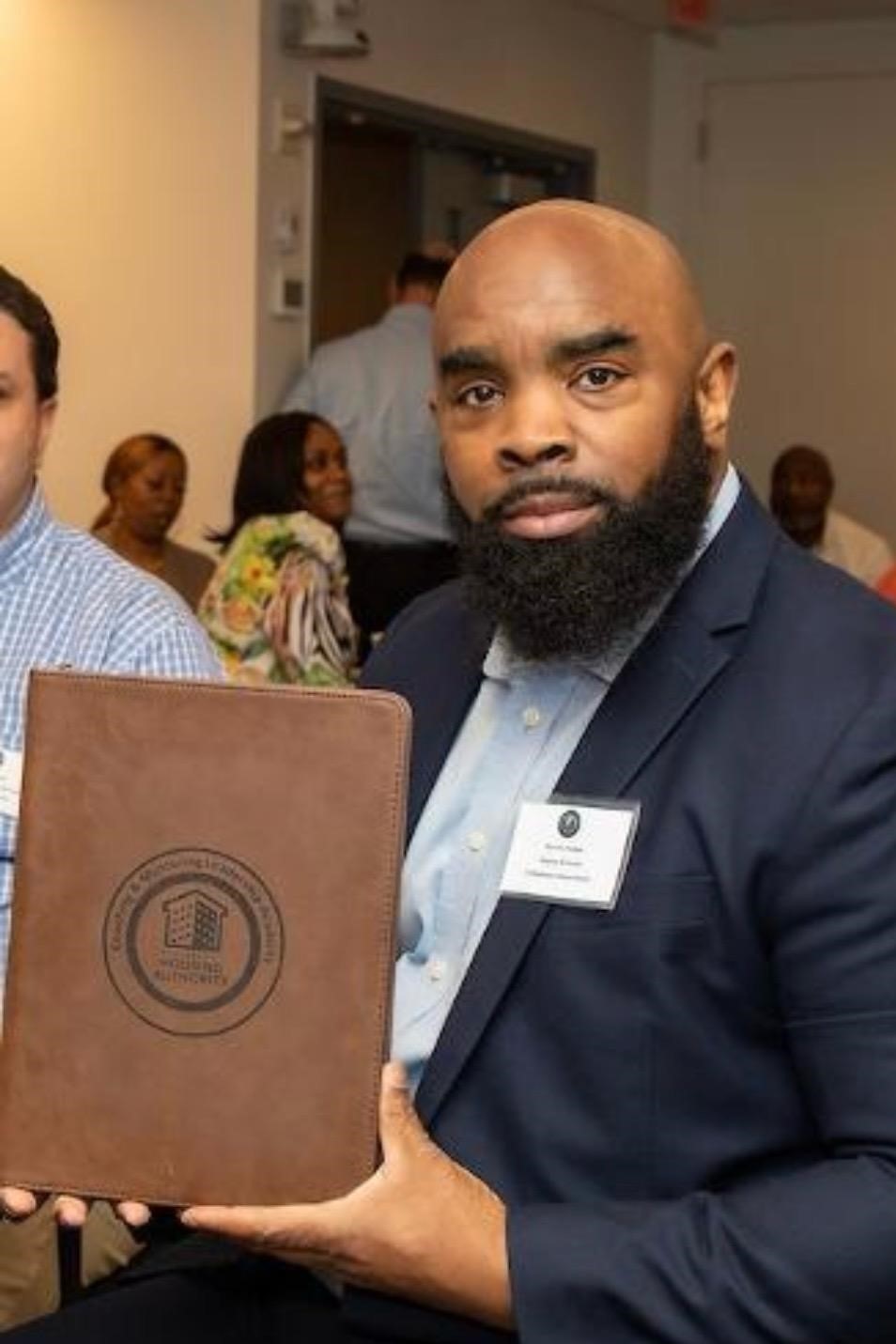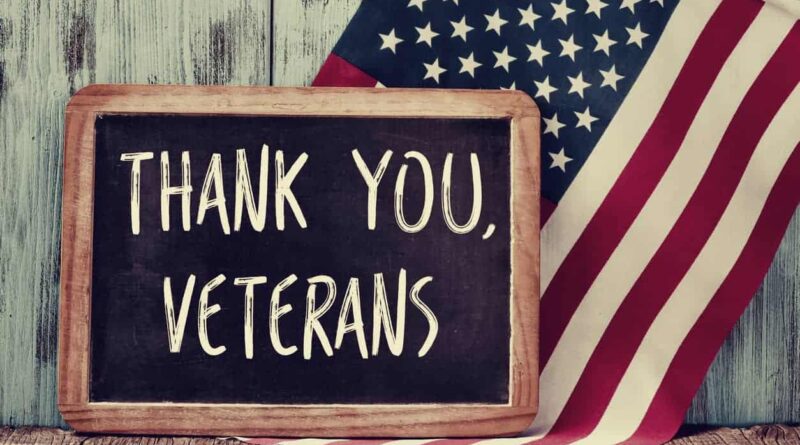U.S. Veterans Exemplify Leadership through Service
In honor of Veterans Day, we asked three dedicated NYCHA staffers who are also U.S. military veterans to tell us about their service and how it has helped them in their careers at NYCHA.
Joseph Pesante has worked as a Clerical Aide with NYCHA’s General Services Department in Long Island City since 2016; he served for eight years in the U.S. Army, primarily as an ammunition specialist, in posts all over the world, including in Colorado, Germany, South Korea, and California’s Mojave Desert.
Franklin Velez is an Associate Staff Analyst in NYCHA’s Human Resources Department as well as a NYCHA Change Ambassador. He joined the U.S. Marines after graduating high school, went to Iraq with one of the first deployments following 9/11, and served there for six months – including on his 21st birthday, during which he survived a mortar attack.
Marlon Forbes is a Deputy Director in NYCHA’s Compliance Department. A proud graduate of the U.S. Military’s BOOST (Broadened Opportunity for Officer Selection & Training) Program, Mr. Forbes was then able to attend Penn State as an ROTC student, where he walked onto the Nittany Lions’ basketball and football teams. Following that, he played in the NFL. After four years as a defensive back for the Chicago Bears and the Cleveland Browns, Mr. Forbes parlayed his military training, sports, and off-the-field work with disadvantaged kids into a distinguished 17-year career of service at NYCHA.



Do you see similarities between service in the U.S. Armed Forces and service with NYCHA?
Joseph Pesante: It’s very similar, in that you’re at the forefront, serving people, just in different capacities. It happens to be in two different industries, but it’s all about the same thing. At the end of the day, that’s what we are here to do, to serve the people in any way we can.
Franklin Velez: For me, both are about service, but here [in NYCHA’s HR Department] I do more work with people behind the scenes. We’re not direct on the front lines, the way the caretakers are at the developments, but we still do receive a lot of calls from residents seeking assistance. Being a NYCHA Change Ambassador, I’ve been able to assist many people with information and knowledge to solve different problems. For example, if a resident in a development in Manhattan has an issue, we help them find the right people to reach out to make that change happen. They are both service, but in different forms.
Marlon Forbes: What I learned and what I developed in the military, which I carry with me to this day, is the concept of teamwork, and putting others before yourself, and attention to detail, and discipline. These are all carryovers. They’re essential to the work we do in the military and at NYCHA too. I’m looking out this way, and I’m relying on you to look that way, because you can’t do it all yourself. You rely on the person next to help you to do the work that helps other people.
How important is it to recognize veterans’ service?
Joseph Pesante: I don’t believe that veterans get the recognition and the acknowledgment they deserve. And not only that – they also don’t get all the services they deserve. It’s important that we first of all acknowledge their service to the country and do the best we can to serve them in return. But just as important – they should have access to all the services they have earned. We shouldn’t have veterans sleeping on the streets, especially at this time of year, during the holiday season.
Just a ‘thank you’ is so important. You’d be surprised how far a ‘thank you’ goes to a veteran who’s served this country and who may be going through tough times.
How has serving our country contributed to making you who you are today?
Marlon Forbes: Just interacting with people day to day, treating people with respect – this is the stuff I use every day. All of that I really got from the military. The organizational skills that I developed from boot camp and through my military training, the discipline, the attention to detail…I still to this day call everyone “Sir” or “Ma’am” most times. I see a little 6-year-old and say, “Good morning, Sir.” Just like the way I fold my clothes – if you look at my desk, it’s organized the way I learned to organize my desk in boot camp.
But more than those things, the concept of service is a direct carryover from my experience in the military. The concept of teamwork, of sacrifice…all those things that are just part of your day in the military, and they carry over here.
In your opinion, can one person really make a difference?
Franklin Velez: The one thing I like to tell people is that ‘one person really can change the world.’ It might not be all at once, it might be a little by little, but we have people in this world – you and me – who can make real changes that can make our world, our communities, just a little better. And there are a lot of us out here. So you keep on doing that. Keep on pushing, keep on fighting that good fight, because there’s always someone who needs your help. We can potentially make that change, and we can help others even when we might not see the bigger picture ourselves. We may not see the whole effect of the help we provide – but just that little bit of help really could be big to someone else.







